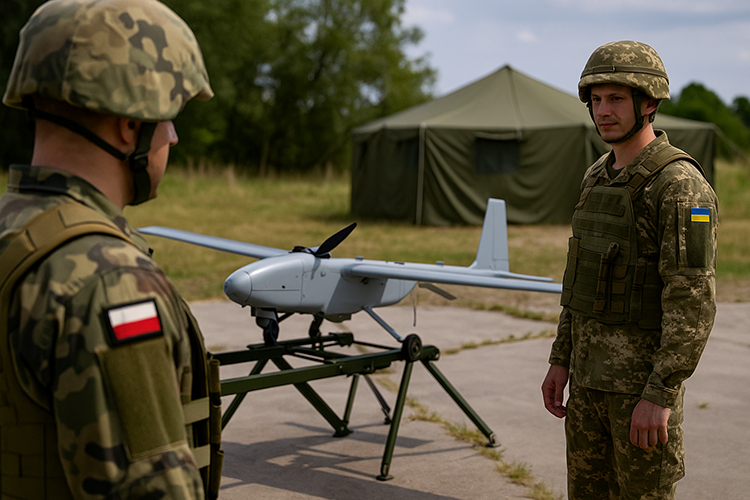Poland and Ukraine Expand Cooperation on Drone Technology and Defence Industry
Poland and Ukraine have deepened their defence partnership with new agreements focused on unmanned systems, training, and industrial collaboration. The measures were announced during the Polish defence minister’s visit to Kyiv in mid-September.
At the centre of the package is a Joint Working Group on Unmanned Aerial Systems, designed to pool Ukrainian battlefield experience with Polish technical capacity. The memorandum commits both ministries to closer cooperation on developing and countering drones, while also setting up regular channels for information exchange. Reuters has reported that training activities will include a Polish facility in Lipa, though specific details remain under discussion.
The initiative is closely linked to the NATO–Ukraine Joint Analysis, Training and Education Centre (JATEC) in Bydgoszcz, which was launched in February 2025. JATEC’s mission is to capture Ukrainian frontline lessons—particularly in drone warfare and electronic countermeasures—and integrate them into NATO doctrine and training. By aligning with this centre, Poland aims to reinforce its position as a key hub for allied innovation and certification in counter-UAS technologies.
For the Polish Armed Forces, the cooperation offers access to tested battlefield methods such as managing drone swarms and protecting systems against electronic warfare. Defence planners argue that integrating this knowledge into procurement decisions will reduce the risk of investing in equipment unsuited for modern combat.
The ministries have also signalled intent to promote joint ventures involving Polish, Ukrainian and US companies. These ventures are expected to focus on co-design, production and servicing of equipment in Poland. Analysts note that the effectiveness of such projects will depend on how far Warsaw allows competition and private investment to play a role, rather than relying solely on state monopolies and lengthy tender processes.
The agreements reflect broader momentum among NATO members to adapt quickly to emerging threats. At the Warsaw Security Forum in late September, Ukrainian officials urged allies to build a shared “drone shield” for Europe, offering training and technology transfer as part of the effort.
For Poland, the new cooperation provides both strategic and industrial opportunities: frontline knowledge from Ukraine, a stronger position within NATO’s innovation agenda, and potential growth for its domestic defence sector. Whether it delivers long-term benefits will depend on the ability to combine battlefield lessons with open market principles to drive faster, cheaper and more resilient solutions.
Source: Warsaw Enterprise Institute (WEI)








